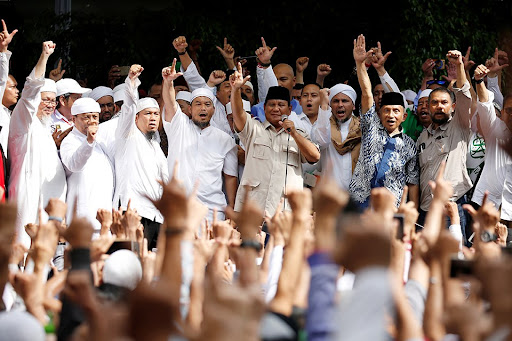Authors: Diego Fossati
Organization/Publisher: German Institute of Global and Area Studies
Affiliation: City University of Hong Kong
Date/Place: September 16, 2019/ Hamburg, Germany.
Type of Literature: Journal Article
Number of Pages: 30
Link: https://journals.sagepub.com/doi/pdf/10.1177/1868103419868400
Keywords: Aliran, Voting Behavior, Democratization, Political Islam
Brief:
This paper analyzes the voting trends in the Indonesian Presidential elections held on April 17, 2019. Indonesia is the largest Muslim democracy of the World by having approximately 193 Million eligible voters. As a result of the 2019 elections, President Joko Widodo was elected for a second term. According to the author, the election results reflect a revival of historical polarized politics in Indonesia. Joko Widodo derived his support from secular and moderate masses whereas his opponent, Prabowo Subianto drew his votes from Islamist circles of Indonesia. These historical partisan identities are known as Aliran or “streams” in Indonesia. The author conducted an extensive field research to analyze the political behavior of Indonesian masses and the impact of ideology on their voting behavior. The results complement his assumption that the ideological divide in election results also resonates in the public sphere. Moreover, his findings explain the relation of Political Islam and socio-economic preferences. According to the survey, for the majority of Indonesians, Political Islam is associated with policy position and issue salience. Regarding the rise of conservatism as a threat to liberal democracy in Indonesia, both Islamists and Secularists agreed on the legitimate authority of democratic institutions. The author finds Islamists as more democratic than Secularists, but with different versions of democracy. Islamists are more inclined towards separation of power and rule of law than the liberal Indonesians. The author concludes that partisan politics in Indonesia may push mainstream political parties to adopt programmatic politics.
By: Muhammad Taimoor Bin Tanveer, CIGA Research Associate




